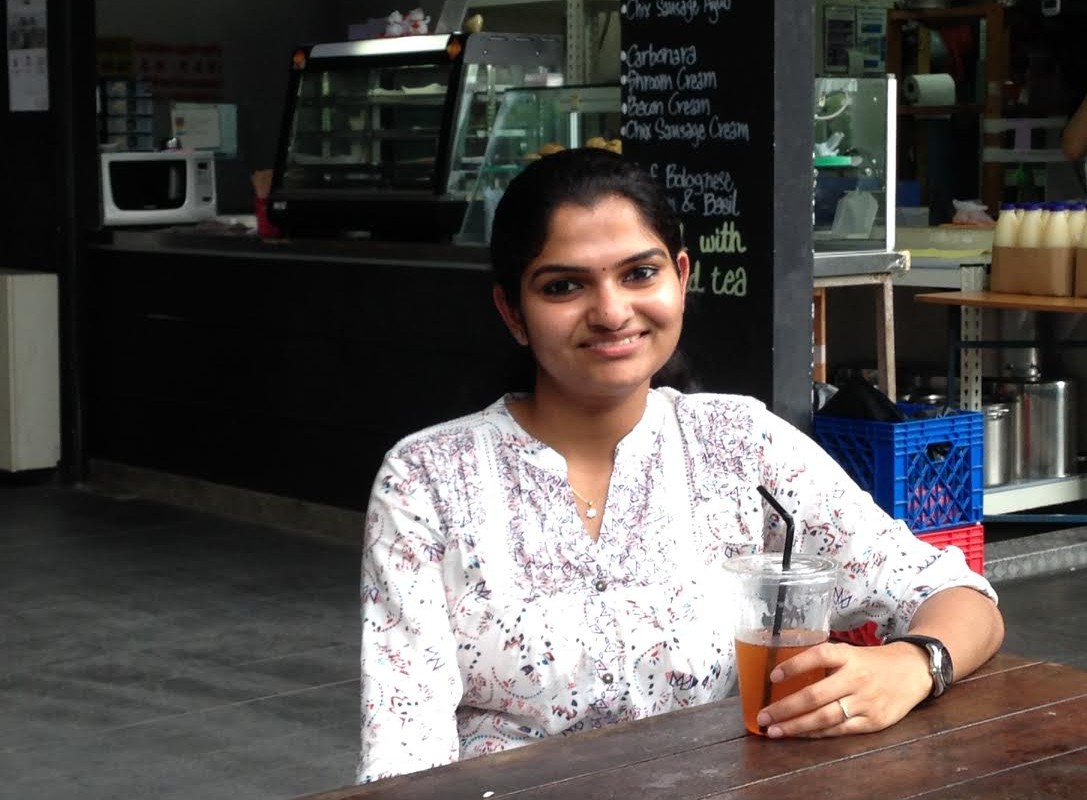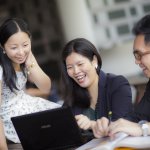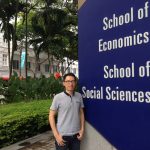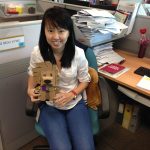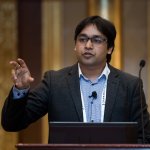By the SMU Postgraduate Research Programmes Team
As a young girl in Kerala, South India, Meeralakshmi Radhakrishnan’s world was filled with fascinating stories of life in research and academia. She enjoyed listening to the experiences of her chemist father and physicist mother, and could not wait to be like them one day.
The bubbly second-year PhD in Information Systems student at the Singapore Management University (SMU) blazed through college and was ranked the top student of her cohort of some 2,000 students. She soon received competitive job offers and spent close to three years as a Senior Systems Engineer at Infosys, a job she liked so much that she did not want to leave, if not for the nagging calls of her academic dreams.
After spending close to a year looking for graduate programmes in India and abroad, she ultimately decided to apply to SMU to undertake her PhD. The decision was a no-brainer. The fact that she could enrol directly without a Master’s degree and the programme’s 4 to 5 year duration – compared to longer American PhD programmes and shorter Australian ones – meant that she would be able to graduate within a reasonable timeframe while still benefitting from rigorous coursework and research training. Additionally, Meera’s brother, who had worked in Singapore, highlighted the country’s strong reputation for safety, cutting-edge technologies and high quality of life. The generous scholarships and stipends, covering tuition fees and provision of monthly living stipends for the first four years of the programme, sealed the deal.
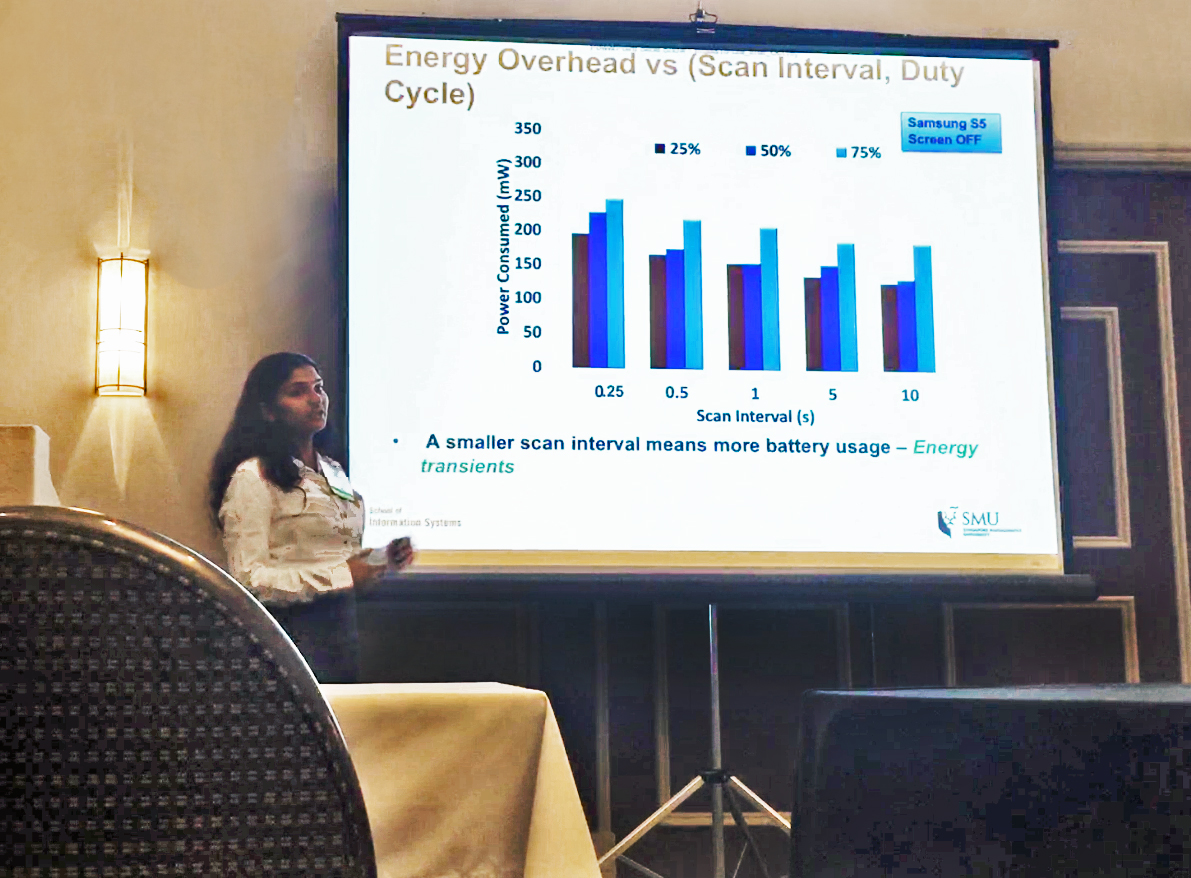
Meera at her first conference talk at IEEE MASS 2015 at Dallas, Texas
Meera is based at SMU’s LiveLabs, the government-supported research testbed where she works on understanding human behaviour through insights gained from the use of mobile technologies. Within her two years at SMU, she travelled to Dallas (United States) and Sydney (Australia) to present papers at conferences. She also took up an internship at XEROX Research Centre in Bangalore, India, where she explored the use of wearable sensors in providing insights on shoppers’ behaviours. “I never thought I’d even go out of Kerala,” she says, “but now I’ve been to Singapore, the US and Australia, and these experiences have made me a more confident person.”
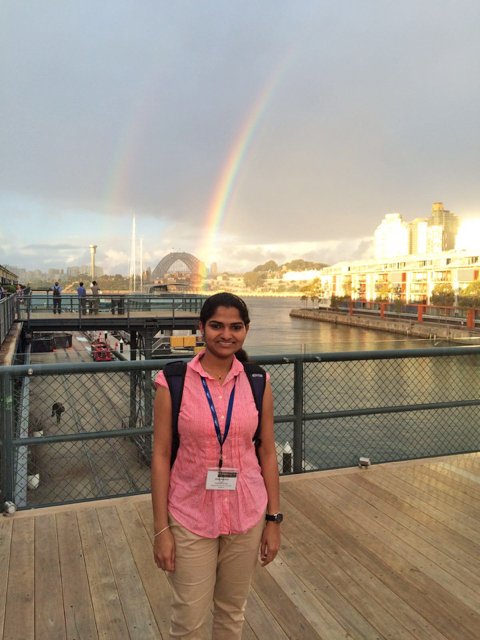
Meera in Sydney for a conference in March 2016
While she remembers these opportunities fondly, she initially had trouble adjusting. She says, “I was very surprised by the workload. The first year was really challenging; the quality of education here is very high and it was hard to cope initially because everything’s so new and highly advanced, and I had not even heard of some of the tools and programming languages that are used here. But with the support of the department, things are much better now; it actually feels like a regular job!”
In her free time, Meera enjoys spending time with friends, watching movies and taking leisurely walks in the evenings. She used to attend Yoga classes on campus, and takes advantage of the country’s highly developed transportation links to explore new places. She explains, “It’s very comfortable and easy to commute just with public transport in Singapore, unlike parts of the US where it’s hard to survive without your own private vehicle. I don’t have to worry if I miss my bus or train or if I get down at a wrong stop, because unlike in my hometown, transport here connects every part of the country and it is frequent.”
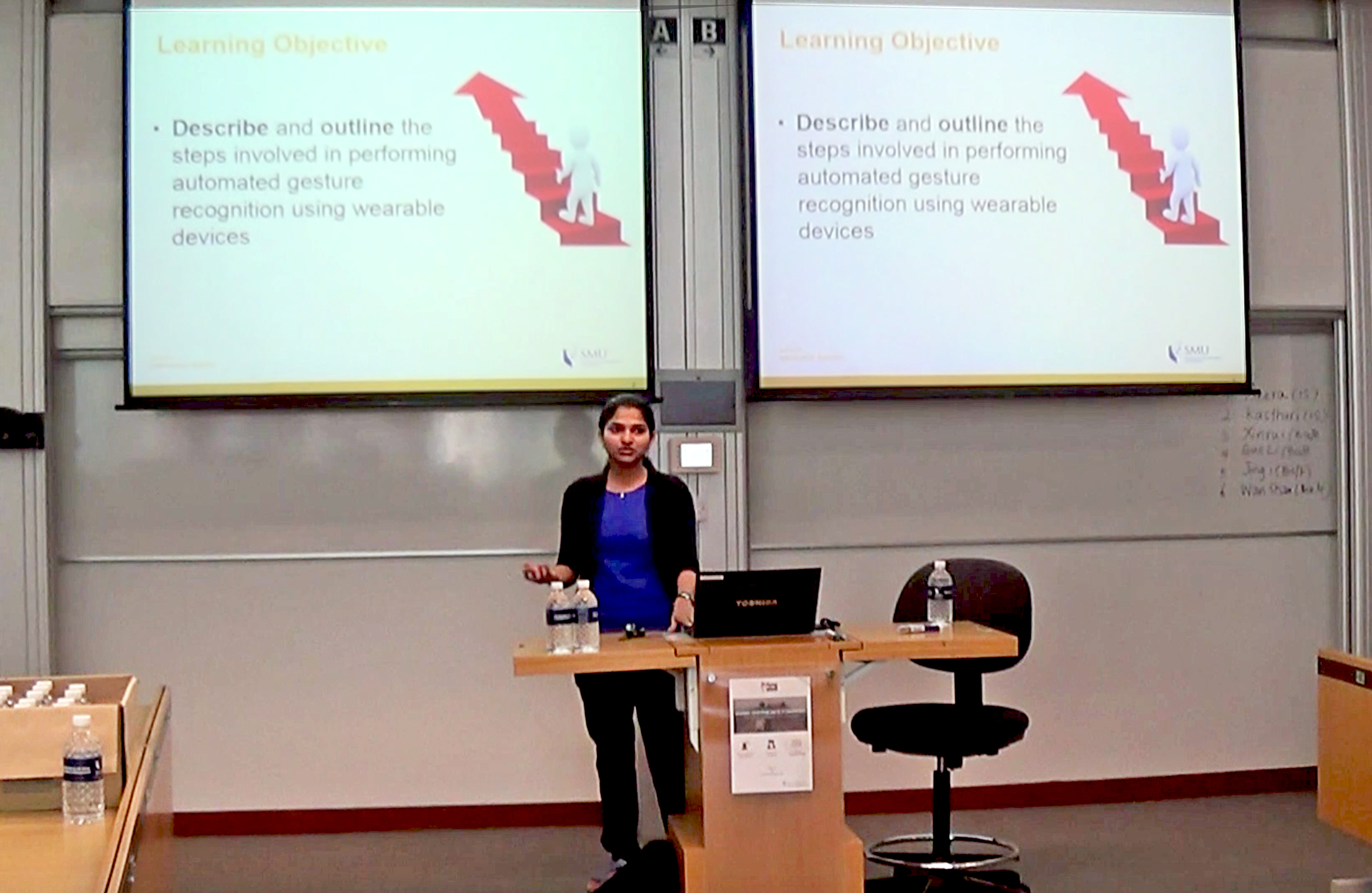
Meera carrying out a micro-teaching session as part of the teaching training
Meera hopes to continue with academic research after completing her PhD. For now, she deeply appreciates the friendly and supportive culture of her school and department, and takes advantage of student development initiatives supported by SMU’s Office of Postgraduate Research Programmes, which include teaching workshops and scientific presentation skills training. “When I first came in, I didn’t have much research experience and my fellow colleagues and professors helped me a lot. They set the foundation for my development as a researcher. We work on multiple projects and quite frequently publish papers together,” she says.
With her programme’s diverse student intake, collegial climate and focus on rigorous practical research, Meera feels right at home in what is generally understood to be a male-dominated industry. When asked about her fondest memory as a PhD student, she pauses, and finally says with bright eyes and a broad smile: “I cannot express in words the feeling when my first paper was accepted for publication.”

